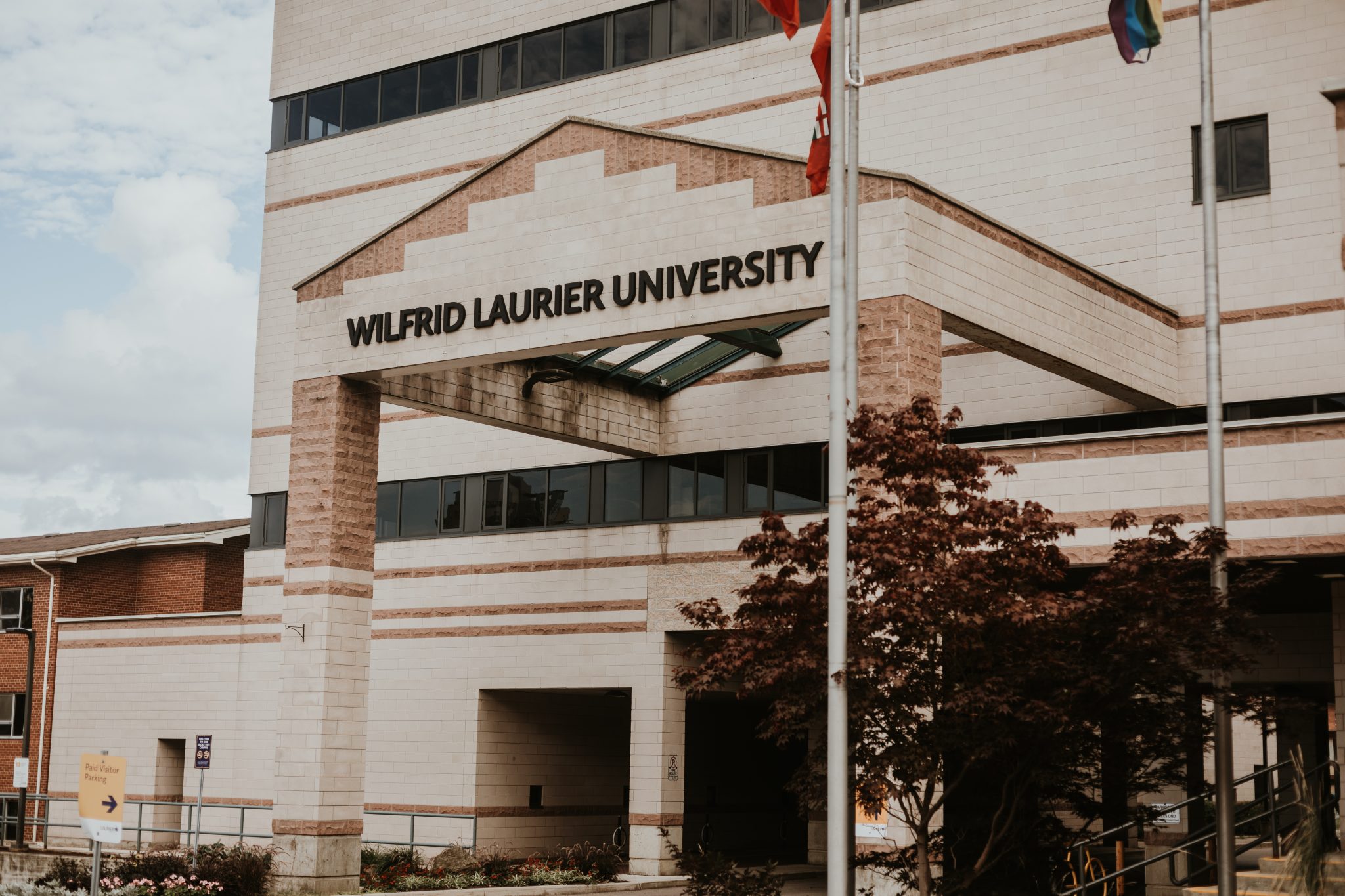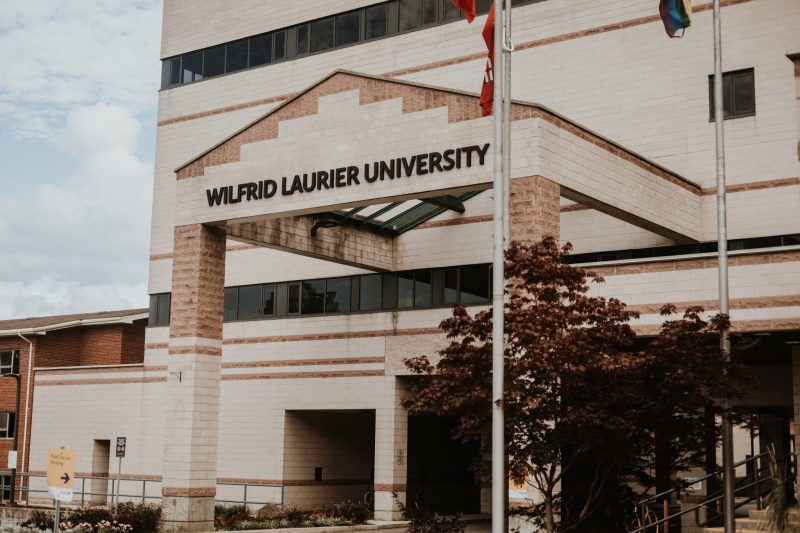How COVID-19 will affect Laurier for the foreseeable future


There’s no telling how COVID-19 will change university education for students in the long term.
For the foreseeable future though, Laurier has undergone and will continue to undergo changes that align with the current public health standards.
In doing this, the school has had to proactively adapt, explained Dan Dawson, chair of the Pandemic Recovery Steering Group (PRSG).
“It’s [about] trying to figure out how we can provide the support that students need and depend on and do it in the most kind of health conscious and safety minded approach.”
“Even though we are delivering service in a completely different way, [we’re] trying to make sure that we’re watching for gaps and trying to be as proactive as possible.”
In mid-March, Laurier discontinued in-person instruction for courses and eventually closed the campus as well, but as the government has begun to reopen the province, Laurier has been working to develop a plan to reopen the university as permitted by provincial health guidelines.
The Pandemic Recovery Steering Group is working to evaluate which services can only be done on-site and which can be effectively done in a remote environment, explained Dawson.
“We granted permission, after careful review, for the bookstore team to return on-site several weeks ago to process online orders. So, the doors of the store will remain closed indefinitely but [we’re] encouraging students and others to purchase their goods through the online web store and then we’ve got a team on site that are actually picking the goods, preparing them, packaging and shipping them out to students.”
“That will then be morphed into a combination of some select locations on campus where students can pick items up, as well as having them shipped if that’s their preference,” he added.
The Athletic Centre has also announced that it will reopen on Sept. 10, in adherence with public health protocols. The Brantford YMCA is planning to reopen as well.
PRSG is now approaching the idea of how to grant students access to campus, whether it be for study or social spaces.
“So, an area like the concourse — that everybody would look at as a gathering space or a study space — we have to make sure that the people coming into the space are healthy through some form of a self assessment process,” Dawson said.
“We need to make sure that were not exceeding the limits of 50 people as assessed by the current stage of reopening that the province is at, and also making sure that everybody has a mask on and is following physical distancing protocols, so you can very quickly imagine that that kind of stuff, to coordinate all of that, is fairly complex.”
“We’re trying to come up with strategies and protocols for each of these types of things before they can actually move into action items,” he added.
On campus dining will also look quite different, as there will be restricted seating in the dining hall as well as three designated cleaning times where the dining hall will be shut down.
“The priority of our food service plan is to primarily support the students living in residence but if we have extra capacity we will also allow any students that are living close to campus to come on campus and use the facilities,” Dawson said.
“We will also be much more flexible than we’ve ever been before about allowing students to take food back to their residence.”
Food and drinks will also be pre-packaged or served by staff to students, rather than the typical self-serve model. On weekends, students will be able to pre-order their food and pick it up, similar to the take-out model that many restaurants deploy.
With all these changes, some may be concerned about the level of service that is being provided. An email sent to undergraduate’s on Aug. 6, stated that “incidental fee rates continue to be similar to or lower than other Ontario universities.”
“Some universities have come out and said, ‘we’ve reduced fees by this percentage or that percentage’. What we found when we reviewed that, is the overall fee structure that’s in place for laurier students is, in a lot of cases, lower than many other campus fees that were in place already,” Dawson said.
“So, their ability as an individual institution to make a certain fee go down by a larger percentage is still higher dollar value than what Laurier students were paying for a similar type of fee.”
“We looked at that comparative aspect as well as what was needed to operate the service on our own campuses, and then we made our own decisions based on what we felt was best, to provide service support for our students,” he added.
The suspension of the U-Pass fee for the fall term has sparked conversation among students,
but the contract negotiated with GRT is ‘all or nothing,’ meaning that either all students get charged the fee or none do.
“[With] the mathematical calculation that was reviewed, it would probably be — in a lot of students’ cases — more cost effective for them to pay per ride then to have every student pay a fee when most students are physically not going to be using the service.”
The first-year experience will also be significantly altered, as orientation week will be hosted virtually over the course of two weeks, starting on Aug. 31.
“This year we wanted to let students have a break between programming blocks to make sure that they’re always engaged when they are taking part in programming or educational programming,” said Brooke Abbott, Assistant Vice President of Programming, Waterloo.
“For that reason we sort of extended everything so that there [are] breaks in between and that’s sort of led us to have O-week be two weeks this year instead of one.”
This year’s programming will still allow for students to bond with each other and their ice-breakers through The Laurier Way, a 5 day series of online games that will help students to familiarize themselves with Laurier’s services, explained Rachel Bishop, Vice President of Student Services, Waterloo.
The O-Week concert will also be facilitated by Canadian Organization of Campus Activities (COCA).
“All of the schools are coming together under the umbrella of COCA, and each school has a representative, and then all schools pool in to run a concert,” Abbott said.
“Because we have so many different schools, we’re gonna be able to cater to a lot of different interests and students […] this year we’re gonna be able to do a line up of a bunch of different types of artists.”
“All of this cool programming is happening but it wouldn’t be possible without all of our volunteers and they’re super important to the organization, this year more than ever,” she added.
With all these considerations, Laurier’s small campus community has undoubtedly been affected.
“That community aspect of things is really what makes Laurier special, and we as a leadership team at the university completely understand that,” Dawson said.
“We’re kind of trying to be very methodical and careful about what we open so that the plan is resilient […] we don’t want to be the cause of an outbreak or facilitate an outbreak, so we’re trying to be very cautious to make sure the health and safety for everybody involved is the highest priority.”


